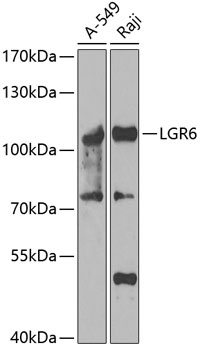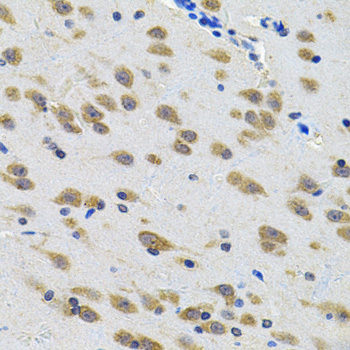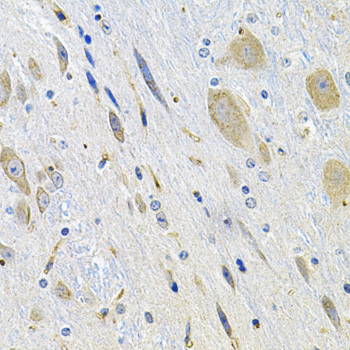-
Product Name
LGR6 Polyclonal Antibody
- Documents
-
Description
Polyclonal antibody to LGR6
-
Tested applications
WB, IHC
-
Species reactivity
Human, Mouse, Rat
-
Alternative names
LGR6 antibody; GPCR antibody; VTS20631 antibody; leucine-rich repeat-containing G-protein coupled receptor 6 antibody
-
Isotype
Rabbit IgG
-
Preparation
Antigen: Recombinant fusion protein containing a sequence corresponding to amino acids 350-510 of human LGR6 (NP_067649.2).
-
Clonality
Polyclonal
-
Formulation
PBS with 0.02% sodium azide, 50% glycerol, pH7.3.
-
Storage instructions
Store at -20℃. Avoid freeze / thaw cycles.
-
Applications
WB 1:500 - 1:2000
IHC 1:50 - 1:200 -
Validations

Western blot - LGR6 Polyclonal Antibody
Western blot analysis of extracts of various cell lines, using LGR6 antibody at 1:1000 dilution._Secondary antibody: HRP Goat Anti-Rabbit IgG (H+L) at 1:10000 dilution._Lysates/proteins: 25ug per lane._Blocking buffer: 3% nonfat dry milk in TBST._Detection: ECL Enhanced Kit ._Exposure time: 90s.

Immunohistochemistry - LGR6 Polyclonal Antibody
Immunohistochemistry of paraffin-embedded rat brain using LGR6 Antibody at dilution of 1:100 (40x lens).

Immunohistochemistry - LGR6 Polyclonal Antibody
Immunohistochemistry of paraffin-embedded mouse brain using LGR6 Antibody at dilution of 1:100 (40x lens).
-
Background
Receptor for R-spondins that potentiates the canonical Wnt signaling pathway and acts as a marker of multipotent stem cells in the epidermis. Upon binding to R-spondins (RSPO1, RSPO2, RSPO3 or RSPO4), associates with phosphorylated LRP6 and frizzled receptors that are activated by extracellular Wnt receptors, triggering the canonical Wnt signaling pathway to increase expression of target genes. In contrast to classical G-protein coupled receptors, does not activate heterotrimeric G-proteins to transduce the signal. May act as a tumor suppressor.
Related Products / Services
Please note: All products are "FOR RESEARCH USE ONLY AND ARE NOT INTENDED FOR DIAGNOSTIC OR THERAPEUTIC USE"
